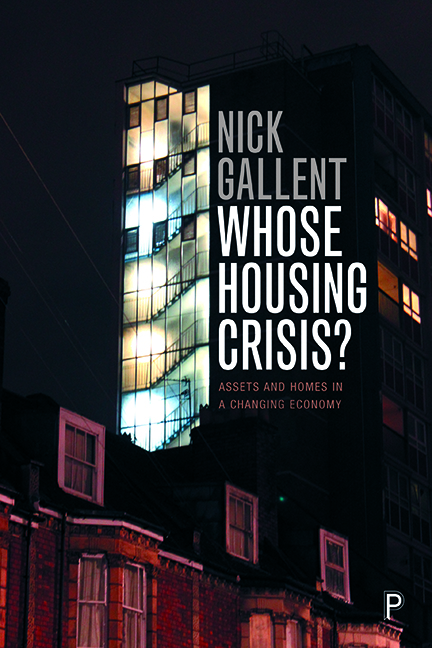2 - A wicked problem
Published online by Cambridge University Press: 27 April 2022
Summary
Housing – or, more specifically, achieving broader equality of access to housing – is a wicked problem. The purpose of this chapter is to explain why, and also to show how the anatomy of the housing crisis shares many, if not all, of the core characteristics of such a problem. The housing stresses briefly introduced in the last chapter are generally thought to have complicated underlying causes: there are big structural reasons why housing is currently at the centre of a far-reaching social and economic crisis, and there are also numerous local paths that have brought England and other parts of the UK to this predicament. An attempt to plot those local paths is made in Chapter 4. The inherent complexity of the housing system, and the multitude of ways in which critical pathways cross and interact to produce particular housing outcomes, have given the crisis its intractable quality. Politicians have occasionally flagged some of that complexity, including former Chancellor George Osborne, in his much-quoted 2014 Mansion House Speech:
‘For most people, their home is the biggest investment of their lifetime. And, of course, they want that asset to increase in value over time. But a home is also a place to live and build our lives – and we want all families to be able to afford security, comfort and peace of mind. That means homes have to be affordable – whether you’re renting or buying. The only way that can be achieved over the long term is by building more, so supply better matches demand. But we are a small and crowded island, keen to protect our green spaces and ready to object to new development. So the British people want our homes to go up in value, but also remain affordable; and we want more homes built, just not next to us. You can see why no one has managed yet to solve the problems of Britain's housing market.’
But complex problems do not necessarily defy resolution. Rather, there is some hope that clever people will dedicate themselves to unravelling those problems and solve them in the end. Social problems, however, embedded deeply within the cultural and political lives of different societies, often have a level of complexity that makes them more than merely difficult to decode.
- Type
- Chapter
- Information
- Whose Housing Crisis?Assets and Homes in a Changing Economy, pp. 23 - 46Publisher: Bristol University PressPrint publication year: 2019



